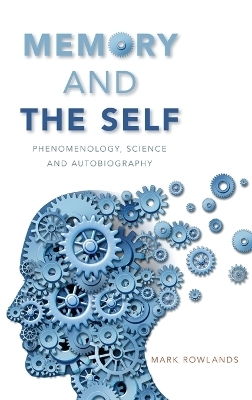
Memory and the Self
Phenomenology, Science and Autobiography
Seiten
2016
Oxford University Press Inc (Verlag)
978-0-19-024146-9 (ISBN)
Oxford University Press Inc (Verlag)
978-0-19-024146-9 (ISBN)
Our memories, many believe, make us who we are. But most of our experiences have been forgotten, and the memories that remain are often wildly inaccurate. How, then, can memories play this person-making role? The answer lies in a largely unrecognized type of memory: Rilkean memory.
The idea that our memories, in some sense, make us who we are, is a common one-and not at all implausible. After all, what could make us who we are if not the things we have experienced, thought, felt and desired on these idiosyncratic pathways through space and time that we call lives? And how can we retain these experiences, thoughts, feelings and desires if not through memory? On the other hand, most of what we have experienced has been forgotten. And there is now a considerable body of evidence that suggests that, even when we think we remember, our memories are likely to be distorted, sometimes beyond recognition. Imagine writing your autobiography, only to find that that most of it has been redacted, and much of the rest substantially rewritten. What would hold this book together? What would make it the unified and coherent account of a life?
The answer, Mark Rowlands argues, lies, partially hidden, in a largely unrecognized form of memory-Rilkean memory. A Rilkean memory is produced when the content of a memory is lost but the act of remembering endures, in a new, mutated, form: a mood, a feeling, or a behavioral disposition. Rilkean memories play a significant role in holding the self together in the face of the poverty and inaccuracy of the contents of memory. But Rilkean memories are important not just because of what they are, but also because of what they were before they became such memories. Acts of remembering sculpt the contents of memories out of the slabs of remembered episodes. Our acts of remembering ensure that we are in the content of each of our memories-present in the way a sculptor is present in his creation-even when this content is lamentably sparse and endemically inaccurate.
The idea that our memories, in some sense, make us who we are, is a common one-and not at all implausible. After all, what could make us who we are if not the things we have experienced, thought, felt and desired on these idiosyncratic pathways through space and time that we call lives? And how can we retain these experiences, thoughts, feelings and desires if not through memory? On the other hand, most of what we have experienced has been forgotten. And there is now a considerable body of evidence that suggests that, even when we think we remember, our memories are likely to be distorted, sometimes beyond recognition. Imagine writing your autobiography, only to find that that most of it has been redacted, and much of the rest substantially rewritten. What would hold this book together? What would make it the unified and coherent account of a life?
The answer, Mark Rowlands argues, lies, partially hidden, in a largely unrecognized form of memory-Rilkean memory. A Rilkean memory is produced when the content of a memory is lost but the act of remembering endures, in a new, mutated, form: a mood, a feeling, or a behavioral disposition. Rilkean memories play a significant role in holding the self together in the face of the poverty and inaccuracy of the contents of memory. But Rilkean memories are important not just because of what they are, but also because of what they were before they became such memories. Acts of remembering sculpt the contents of memories out of the slabs of remembered episodes. Our acts of remembering ensure that we are in the content of each of our memories-present in the way a sculptor is present in his creation-even when this content is lamentably sparse and endemically inaccurate.
Mark Rowlands is Professor of Philosophy at the University of Miami. He is the author of eighteen books and over a hundred journal articles, chapters and reviews, and his work has been translated into more than twenty languages. His memoir, The Philosopher and the Wolf, became an international bestseller.
Preface and Acknowledgments
1. Memory and the Self: An Adumbration of Some Major Themes
2. The Varieties of Remembering
3. Rilkean Memory
4. The Metaphysical and the Autobiographical Self
5. The Problem of Forgetting
6. The Problem of Falsity
7. Rilkean Memory and the Style of a Person
8. The Presence of Self in Memory
9. The Content of Memory
10. The Waters of Lethe
References
Index
| Erscheinungsdatum | 23.11.2016 |
|---|---|
| Verlagsort | New York |
| Sprache | englisch |
| Maße | 236 x 157 mm |
| Gewicht | 454 g |
| Themenwelt | Geisteswissenschaften ► Philosophie |
| Geisteswissenschaften ► Psychologie ► Allgemeine Psychologie | |
| Geisteswissenschaften ► Psychologie ► Biopsychologie / Neurowissenschaften | |
| Geisteswissenschaften ► Psychologie ► Verhaltenstherapie | |
| ISBN-10 | 0-19-024146-2 / 0190241462 |
| ISBN-13 | 978-0-19-024146-9 / 9780190241469 |
| Zustand | Neuware |
| Haben Sie eine Frage zum Produkt? |
Mehr entdecken
aus dem Bereich
aus dem Bereich
Techniken der Verhaltenstherapie
Buch (2024)
Julius Beltz GmbH & Co. KG (Verlag)
35,00 €


